-
 Bitcoin
Bitcoin $82,622.1616
-1.47% -
 Ethereum
Ethereum $1,820.8424
-3.32% -
 Tether USDt
Tether USDt $0.9997
0.06% -
 XRP
XRP $2.1251
-2.93% -
 BNB
BNB $603.8936
-2.40% -
 Solana
Solana $124.6784
-4.06% -
 USDC
USDC $1.0000
0.03% -
 Dogecoin
Dogecoin $0.1687
-6.35% -
 Cardano
Cardano $0.6710
-4.23% -
 TRON
TRON $0.2331
-0.29% -
 Toncoin
Toncoin $3.7196
-2.44% -
 Chainlink
Chainlink $13.5122
-4.61% -
 UNUS SED LEO
UNUS SED LEO $9.6065
-1.00% -
 Avalanche
Avalanche $19.8174
-0.46% -
 Stellar
Stellar $0.2654
-2.94% -
 Shiba Inu
Shiba Inu $0.0...01255
-4.67% -
 Sui
Sui $2.2803
-9.44% -
 Hedera
Hedera $0.1697
-6.76% -
 Litecoin
Litecoin $85.2873
-1.75% -
 Polkadot
Polkadot $4.0457
-5.60% -
 MANTRA
MANTRA $6.2142
-1.10% -
 Bitcoin Cash
Bitcoin Cash $301.5531
-1.77% -
 Bitget Token
Bitget Token $4.6035
-3.97% -
 Pi
Pi $0.8022
-2.68% -
 Dai
Dai $1.0000
0.01% -
 Ethena USDe
Ethena USDe $0.9997
0.09% -
 Hyperliquid
Hyperliquid $12.7284
-5.02% -
 Monero
Monero $213.6903
-1.47% -
 Uniswap
Uniswap $5.9100
-3.55% -
 Aptos
Aptos $5.1847
-6.37%
What is the difference between a Bitcoin address and a smart contract address?
Bitcoin addresses send/receive BTC on the Bitcoin blockchain, while smart contract addresses on Ethereum enable complex interactions beyond simple transfers.
Mar 27, 2025 at 12:56 am
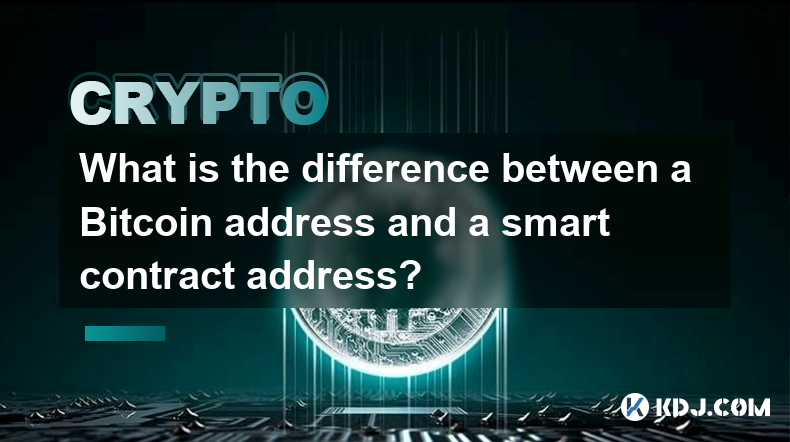
Understanding Bitcoin Addresses and Smart Contract Addresses
Bitcoin addresses and smart contract addresses, while both crucial in the cryptocurrency landscape, serve fundamentally different purposes and operate within distinct blockchain ecosystems. Understanding their differences is key to navigating the complexities of decentralized finance (DeFi) and blockchain technology.
A Bitcoin address is essentially a unique identifier used to receive and send Bitcoins. It's a cryptographic hash derived from a public key, allowing others to send BTC to a specific user without revealing their private key. Think of it as your bank account number – you provide it to receive funds. It's a relatively simple, one-dimensional concept focused solely on Bitcoin transactions.
In contrast, a smart contract address is a location on a blockchain (typically Ethereum or other EVM-compatible chains) where a smart contract's code and associated data reside. A smart contract is a self-executing contract with the terms of the agreement directly written into code. The address itself isn't directly used to send or receive cryptocurrency in the same way a Bitcoin address is. Instead, it's the interface through which you interact with the smart contract's functionality.
Functionality and Purpose
The core difference lies in their functionality. A Bitcoin address facilitates the transfer of Bitcoin; it's a simple, unidirectional transaction. You send Bitcoin to an address. A smart contract address, however, enables interaction with a program. You interact with a smart contract address to execute its functions, which might involve transferring tokens, but it's not its primary purpose.
Consider this analogy: a Bitcoin address is like a mailbox – you send mail (Bitcoin) to it. A smart contract address is like a vending machine – you interact with it to receive a specific product (perform a specific function) after fulfilling certain conditions (paying the required fees or tokens).
Underlying Technology and Blockchain
Bitcoin addresses operate on the Bitcoin blockchain, a simpler blockchain primarily focused on peer-to-peer digital currency transactions. The underlying cryptography is relatively straightforward, optimized for fast and secure Bitcoin transfers.
Smart contract addresses, on the other hand, exist on blockchains designed to support more complex functionalities, like Ethereum. These blockchains utilize more sophisticated scripting languages (like Solidity for Ethereum) to enable the creation and execution of smart contracts. This allows for decentralized applications (dApps) and more complex interactions beyond simple currency transfers.
Interaction and Usage
Interacting with a Bitcoin address is straightforward: you simply provide the address when sending a transaction. You don't need to understand the underlying technology.
Interacting with a smart contract address is more complex. You typically need to use a wallet or interface that understands the specific smart contract's functions and parameters. You might need to specify the function you want to call and any necessary inputs. This interaction often involves transaction fees and requires a deeper understanding of the smart contract's code and functionality.
Security Implications
Both Bitcoin addresses and smart contract addresses have security implications. Losing access to the private key associated with a Bitcoin address results in the loss of the funds associated with that address.
With smart contract addresses, the security concerns are broader. Bugs in the smart contract's code can be exploited, leading to vulnerabilities and potentially significant financial losses. Furthermore, understanding the smart contract's code and verifying its security is crucial before interacting with it. Poorly written or audited smart contracts are prone to hacks and exploits.
Key Differences Summarized
- Purpose: Bitcoin addresses receive and send Bitcoin; smart contract addresses interact with smart contract code.
- Functionality: Bitcoin addresses are unidirectional; smart contract addresses enable complex interactions.
- Blockchain: Bitcoin addresses reside on the Bitcoin blockchain; smart contract addresses reside on blockchains like Ethereum.
- Interaction: Bitcoin address interaction is simple; smart contract address interaction is more complex and requires understanding the contract's functionality.
- Security: Both have security implications, but smart contracts add the risk of code vulnerabilities.
Frequently Asked Questions
Q: Can I send Bitcoin to a smart contract address?
A: Technically, you might be able to send Bitcoin to an address associated with a smart contract if that smart contract is designed to accept Bitcoin. However, this is not the typical use case. Most smart contracts operate on different blockchains (like Ethereum) and use their native tokens (like Ether). Sending Bitcoin to an Ethereum smart contract address would likely result in the loss of your Bitcoin.
Q: Can I use a Bitcoin address to interact with a smart contract?
A: No. Bitcoin addresses are solely for transferring Bitcoin. You need a compatible wallet and interface to interact with a smart contract address, and this usually involves a different blockchain and its native token.
Q: Are smart contract addresses always associated with Ethereum?
A: While Ethereum is the most prominent platform for smart contracts, other blockchains also support them. Smart contract addresses exist on various platforms, each with its own specific characteristics and programming languages.
Q: What happens if I send funds to the wrong Bitcoin address or smart contract address?
A: Sending funds to the wrong Bitcoin address usually means irreversible loss of funds. Sending funds to the wrong smart contract address can also result in loss, or potentially unintended consequences depending on the smart contract's design. Always double-check addresses before sending any cryptocurrency.
Q: How do I find a smart contract address?
A: Smart contract addresses are typically publicly available once the contract is deployed on the blockchain. You can find them through blockchain explorers or the decentralized application (dApp) that utilizes the smart contract. The specific method depends on the blockchain and dApp.
Q: Are smart contracts always secure?
A: No, smart contracts are only as secure as the code they are written in. Poorly written or audited contracts are vulnerable to exploits. Always research and verify the security of a smart contract before interacting with it. Audits by reputable security firms are a good indicator of security.
Disclaimer:info@kdj.com
The information provided is not trading advice. kdj.com does not assume any responsibility for any investments made based on the information provided in this article. Cryptocurrencies are highly volatile and it is highly recommended that you invest with caution after thorough research!
If you believe that the content used on this website infringes your copyright, please contact us immediately (info@kdj.com) and we will delete it promptly.
- Pepe (PEPE) Meme Coin Loses Key Support and Is Poised for a Massive Price Drop
- 2025-03-30 04:00:12
- PEPE (PEPE) MEME COIN DUMPED CITY AND HOLDS AHEAD OF MARKET Sentiment Decline
- 2025-03-30 04:00:12
- Rexas Finance (RXS) Emerges as a Contender in the Cryptocurrency Market
- 2025-03-30 03:55:12
- Naira Records Its First Relative Gain Against the Dollar This Week
- 2025-03-30 03:55:12
- Qubetics (TICS) is a blockchain project that introduces the QubeQode IDE, simplifying development
- 2025-03-30 03:50:12
- Qubetics (TICS): The Non-Custodial Wallet Ready to Disrupt Web3
- 2025-03-30 03:50:12
Related knowledge

How to open a Bitcoin spot trading account
Mar 29,2025 at 12:43pm
Choosing the Right ExchangeOpening a Bitcoin spot trading account involves selecting a reputable cryptocurrency exchange. Several factors are crucial here. Consider the exchange's security features – look for two-factor authentication (2FA) and robust security protocols. Examine trading fees, as these can significantly impact your profits. Check the av...
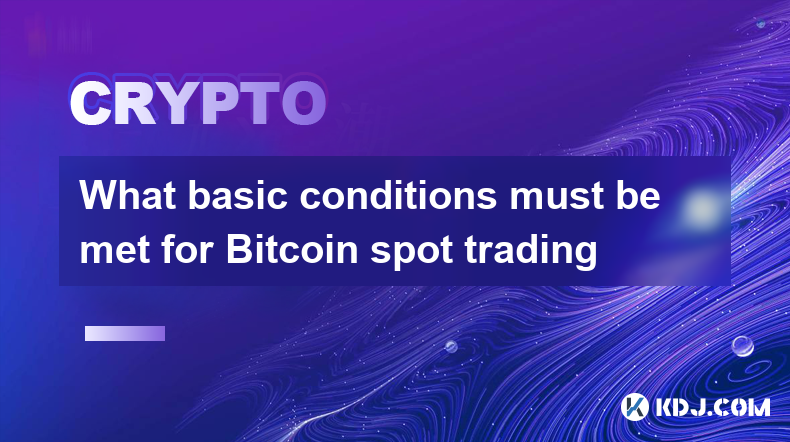
What basic conditions must be met for Bitcoin spot trading
Mar 29,2025 at 11:43pm
? Understanding the Prerequisites for Bitcoin Spot TradingBitcoin spot trading, unlike futures or derivatives trading, involves the immediate exchange of Bitcoin (BTC) for fiat currency (like USD, EUR, etc.) or another cryptocurrency. To engage in this, several crucial conditions must be met, both on the regulatory and practical fronts. Let's delve into...
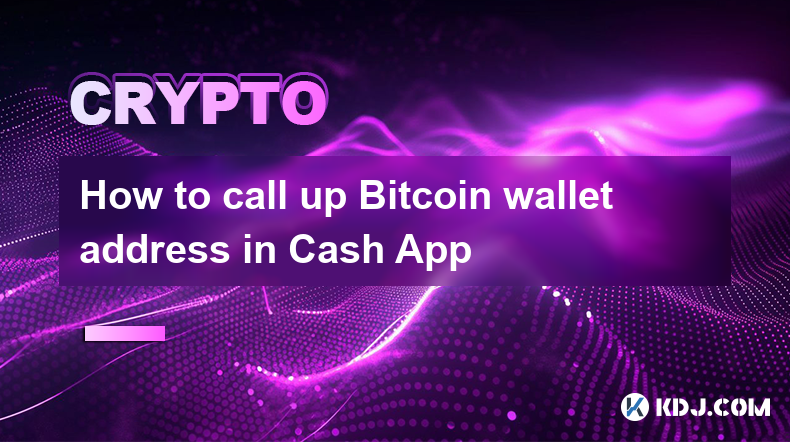
How to call up Bitcoin wallet address in Cash App
Mar 29,2025 at 05:29pm
Cash App, a popular peer-to-peer payment app, allows users to buy, sell, and hold Bitcoin. However, accessing your Bitcoin wallet address directly within the app isn't as straightforward as some other cryptocurrency wallets. This article will guide you through the process and address common concerns. Understanding Bitcoin Addresses in Cash AppUnlike so...
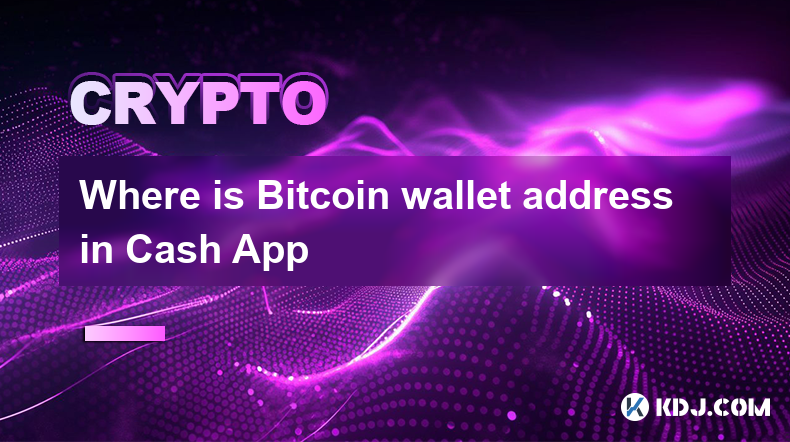
Where is Bitcoin wallet address in Cash App
Mar 29,2025 at 10:56am
? Cash App, a popular mobile payment service, allows users to buy, sell, and hold Bitcoin. However, finding your Bitcoin wallet address isn't as straightforward as with some other crypto wallets. Cash App doesn't display a traditional wallet address in the same way as dedicated Bitcoin wallets like Electrum or Exodus. This is because Cash App manages th...
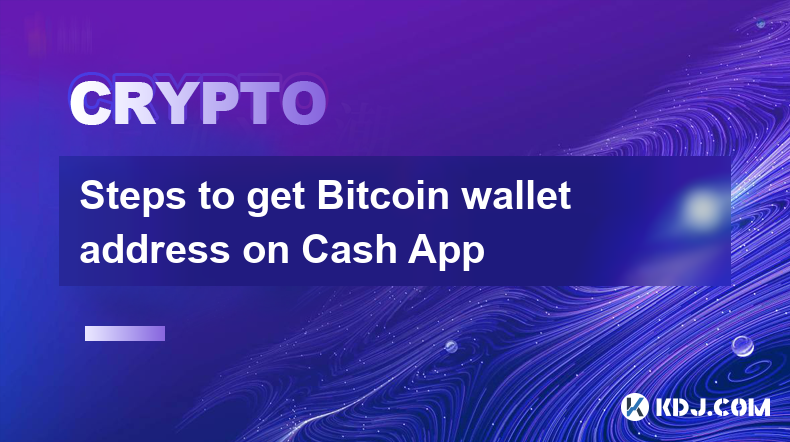
Steps to get Bitcoin wallet address on Cash App
Mar 29,2025 at 11:49pm
Steps to Get a Bitcoin Wallet Address on Cash App Cash App, a popular peer-to-peer payment app, allows users to buy, sell, and hold Bitcoin. However, unlike dedicated cryptocurrency wallets, it doesn't directly display a Bitcoin wallet address in the traditional sense. Instead, it uses a system that manages Bitcoin transactions internally. Understanding...
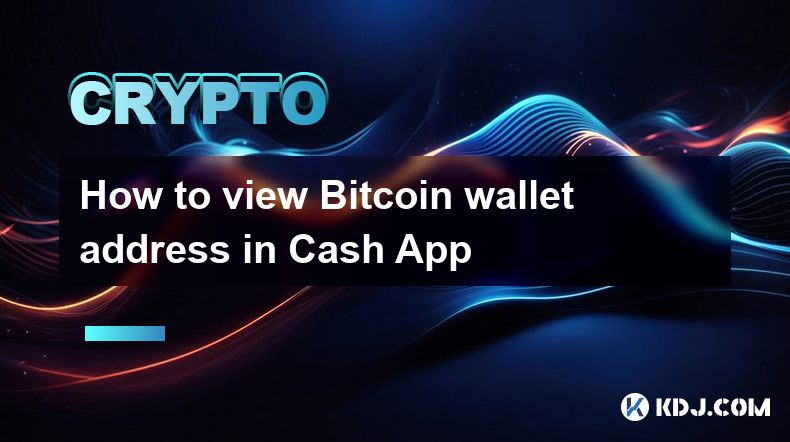
How to view Bitcoin wallet address in Cash App
Mar 29,2025 at 02:35pm
Cash App, a popular peer-to-peer payment app, allows users to buy, sell, and hold Bitcoin. However, accessing your Bitcoin wallet address isn't as straightforward as some other crypto wallets. This article will detail the process and address common concerns. Finding Your Bitcoin Receiving AddressUnlike some dedicated crypto wallets that prominently dis...

How to open a Bitcoin spot trading account
Mar 29,2025 at 12:43pm
Choosing the Right ExchangeOpening a Bitcoin spot trading account involves selecting a reputable cryptocurrency exchange. Several factors are crucial here. Consider the exchange's security features – look for two-factor authentication (2FA) and robust security protocols. Examine trading fees, as these can significantly impact your profits. Check the av...

What basic conditions must be met for Bitcoin spot trading
Mar 29,2025 at 11:43pm
? Understanding the Prerequisites for Bitcoin Spot TradingBitcoin spot trading, unlike futures or derivatives trading, involves the immediate exchange of Bitcoin (BTC) for fiat currency (like USD, EUR, etc.) or another cryptocurrency. To engage in this, several crucial conditions must be met, both on the regulatory and practical fronts. Let's delve into...

How to call up Bitcoin wallet address in Cash App
Mar 29,2025 at 05:29pm
Cash App, a popular peer-to-peer payment app, allows users to buy, sell, and hold Bitcoin. However, accessing your Bitcoin wallet address directly within the app isn't as straightforward as some other cryptocurrency wallets. This article will guide you through the process and address common concerns. Understanding Bitcoin Addresses in Cash AppUnlike so...

Where is Bitcoin wallet address in Cash App
Mar 29,2025 at 10:56am
? Cash App, a popular mobile payment service, allows users to buy, sell, and hold Bitcoin. However, finding your Bitcoin wallet address isn't as straightforward as with some other crypto wallets. Cash App doesn't display a traditional wallet address in the same way as dedicated Bitcoin wallets like Electrum or Exodus. This is because Cash App manages th...

Steps to get Bitcoin wallet address on Cash App
Mar 29,2025 at 11:49pm
Steps to Get a Bitcoin Wallet Address on Cash App Cash App, a popular peer-to-peer payment app, allows users to buy, sell, and hold Bitcoin. However, unlike dedicated cryptocurrency wallets, it doesn't directly display a Bitcoin wallet address in the traditional sense. Instead, it uses a system that manages Bitcoin transactions internally. Understanding...

How to view Bitcoin wallet address in Cash App
Mar 29,2025 at 02:35pm
Cash App, a popular peer-to-peer payment app, allows users to buy, sell, and hold Bitcoin. However, accessing your Bitcoin wallet address isn't as straightforward as some other crypto wallets. This article will detail the process and address common concerns. Finding Your Bitcoin Receiving AddressUnlike some dedicated crypto wallets that prominently dis...
See all articles






















































































